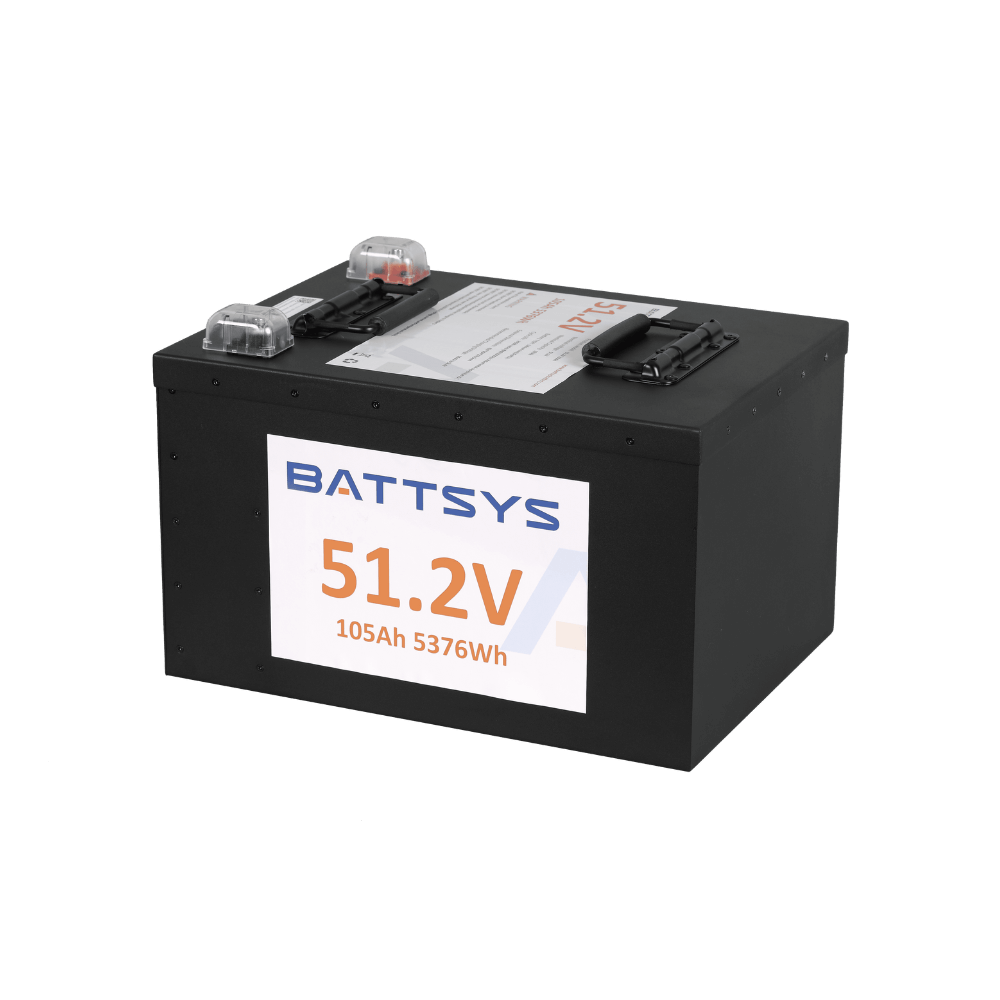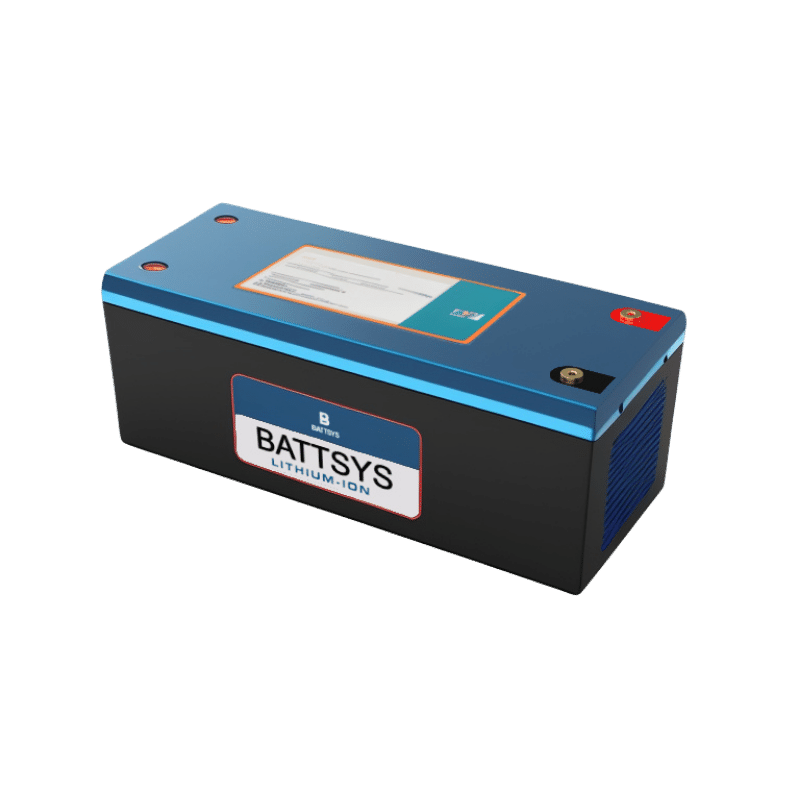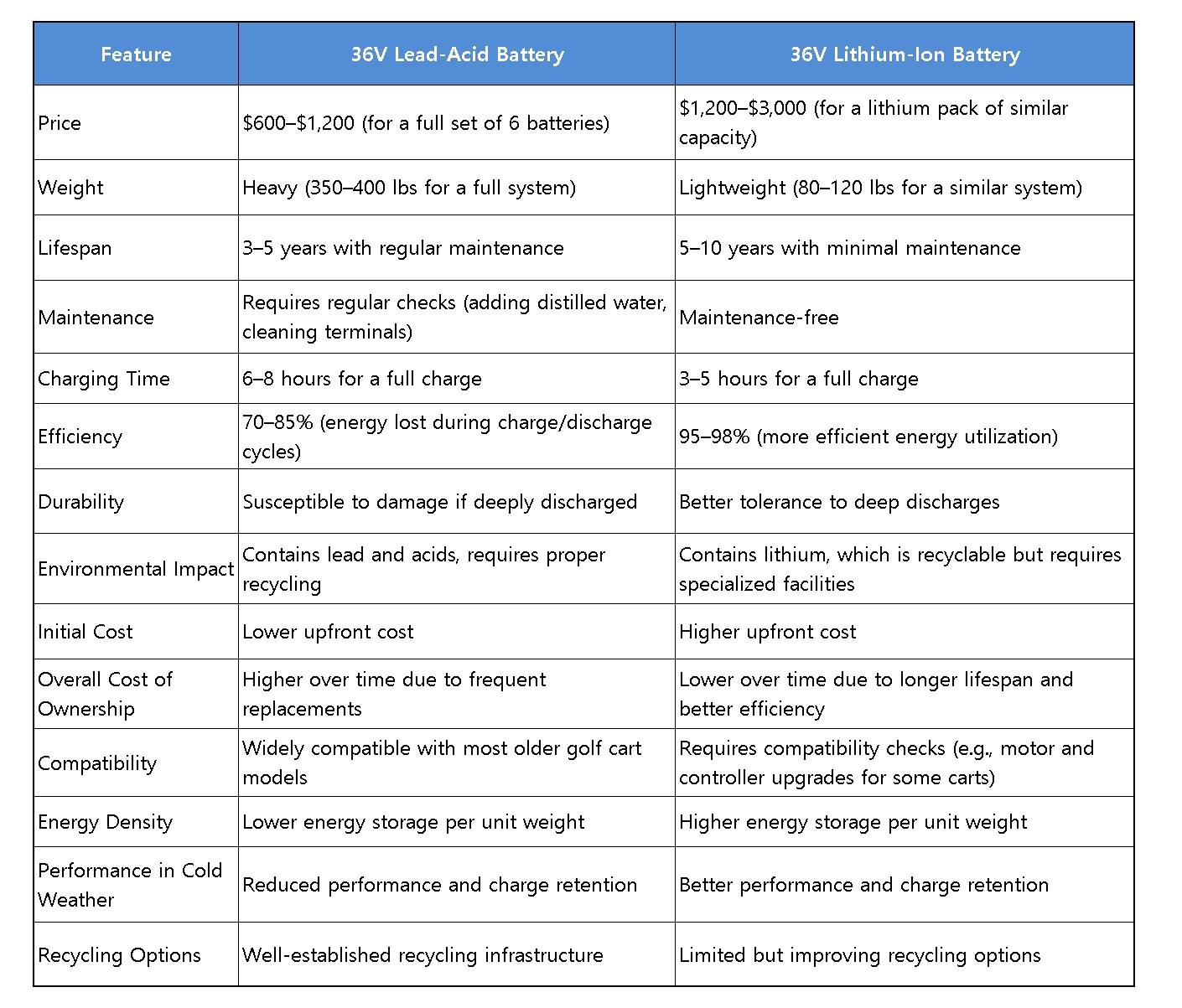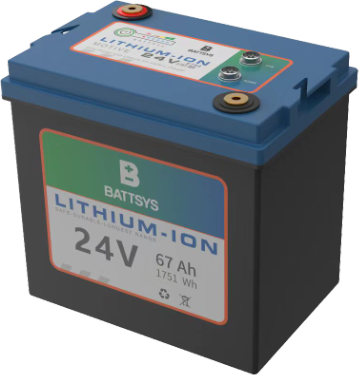A reliable battery is the heart of your golf cart, ensuring consistent performance and longevity. Whether you're upgrading or replacing, choosing the right 36V battery can dramatically improve your ride's efficiency. Explore everything you need to know about 36V batteries, including their features, types, maintenance, and top picks tailored for various golf cart models like Club Car, Yamaha, and EZ Go.
A 36V golf cart battery is a power source specifically designed to supply electricity to 36-volt golf cart systems. These batteries are used to operate electric motors in golf carts, providing the energy needed for movement, acceleration, and additional functionalities like lights or charging ports.
36V golf cart battery system typically consists of a series of smaller batteries (e.g., 6V or 12V units connected in series) that combine to produce a total of 36 volts.
Application: These batteries are most commonly used in older golf cart models or in carts designed for flat terrains and lighter workloads.





Battsys is the best 36V golf cart Manufacturer with Premium Quality, Battsys golf cart lithium batteries have a design lifespan of up to 10 years and a cycle life exceeding 3,500 cycles. Compared to traditional lead-acid batteries, they offer 10 times the lifespan, weigh half as much, and require no regular inspection or maintenance. Upgrading to lithium batteries significantly enhances performance, providing longer driving time, stronger uphill power, and a safer, more durable, and efficient power experience.

5-year warranty . 3500+ cycles. Charging can last for 8 months.
Learn More
5-year warranty . 3500+ cycles. Charging can last for 8 months.
Learn MoreCasual Golfers: Perfect for golfers who use their carts on standard courses with minimal hills.
Residential Users: Ideal for lightweight residential use, such as transporting goods around a neighborhood.
Cost-Conscious Buyers: Great for individuals looking for a more affordable alternative to 48V systems.
Performance Level: Provides adequate power for light to medium tasks, such as navigating standard golf courses or flat residential neighborhoods.
Affordability: Typically cheaper than 48V systems, making them suitable for users seeking cost-effective options.
Charging Efficiency: Compatible with a range of chargers designed for 36V systems, though charge times and maintenance differ by type (lead-acid vs. lithium).
Lead-acid batteries last 3-5 years; lithium batteries can last up to 10 years.
Yes, but you'll need to replace additional components like the motor and controller.
Yes, most lithium batteries include a Battery Management System (BMS) for added safety.
The runtime depends on the battery type and capacity (Ah). Typically, a 36V lead-acid battery provides 30-50 miles of range, while a lithium-ion battery can achieve 40-70 miles due to higher energy efficiency. Factors like terrain, load, and driving habits also affect runtime.
Yes, but upgrading to 48V may require replacing the motor, controller, and charger. This upgrade improves power and range but comes with a higher upfront cost.
Always use a charger designed for 36V batteries. For lead-acid batteries, charge after every use and avoid overcharging. Lithium-ion batteries require smart chargers that prevent overcharging and balancing issues.
Lead-acid batteries may perform poorly in cold weather, with reduced capacity and efficiency. Lithium-ion batteries handle temperature variations better but should be stored in moderate conditions to avoid overheating or freezing.
Lead-Acid Batteries:
Affordable and widely available.
Require regular maintenance (e.g., adding water).
Lifespan: 3-5 years.
Best for infrequent or low-intensity use.
Lithium-Ion Batteries:
Higher upfront cost but lower total cost of ownership.
Maintenance-free and lightweight.
Lifespan: 5-10 years.
Ideal for frequent use and users seeking long-term reliability.
Proper Charging:
Always use a charger designed for your battery type (lead-acid or lithium).
Avoid overcharging or fully discharging the battery.
Regular Inspection:
Check for corrosion on terminals and clean as needed.
Storage Tips:
Store in a cool, dry location when not in use.
Driving Habits:
Avoid steep inclines frequently as it drains the battery faster.
Ease of Use: Compatible with many popular golf cart models.

Our excellent sales and technical team help your business find the best Rol rate

E-Mail: inquiry@fentbattery.com
Address: No.3, Dongli Road, Xili, Dongyong Town, Nansha District, Guangzhou City, China
0086 20 3901-1403Copyright:Guangzhou Battsys Co.ltd